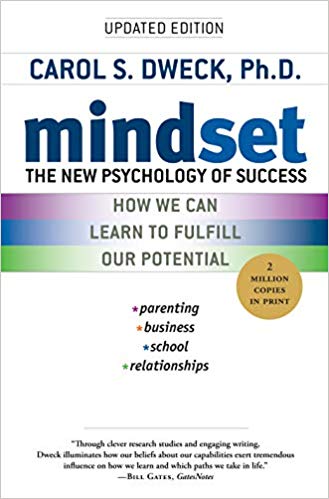

This article is an excerpt from the Shortform summary of "Mindset" by Carol Dweck. Shortform has the world's best summaries of books you should be reading.
Like this article? Sign up for a free trial here .
What is the success mindset? How does the way you define success affect how successful you are?
We’ll cover the elements of the success mindset and look at examples of the success mindset in school, sports, business, and relationships.
Success Mindset: Redefining Success
When you start out in life, success is about learning. You’re born with a drive to learn. Babies learn and stretch themselves every day. They don’t worry about failing or quit. For instance, they don’t decide walking is too hard and give up or fear falling. They just keep trying.
As early as preschool age, however, children develop mindsets or beliefs about their ability. Fixed mindsets slow or shut down the intense drive to learn. Some children become fearful of not being seen as smart; they begin rejecting challenges. Others, with a success mindset, embrace challenges and relish becoming smarter. Fixed mindset children become non-learners.
For instance, the author and her research team offered four-year-olds a choice of redoing an easy puzzle or trying a new, harder one. Children who believed in fixed traits wanted to redo the easy puzzle (the safe choice), while children with success mindsets wondered why anyone would want to keep redoing the same thing when they could try something else. In other words, children with a fixed mindset wanted to make sure they succeeded, as they believed smart people always do, while those with a success mindset wanted to get smarter.
Over time, people with fixed mindsets and growth mindsets (success mindset) come to view the nature of success differently.
- Fixed-minded people avoid challenges because they want to feel smart and in control. In contrast, growth-minded people thrive on challenge and stretch themselves past their comfort zone.
- Fixed-minded people care about perfection. To feel smart, they not only have to “get it” right away, they have to be perfect at it. In contrast, growth-minded people said they felt smart when they tried hard and made progress or were able to do something they couldn’t do before. Feeling smart was about learning.
- Fixed-minded people expect to immediately perform at high levels, without the need to learn. They don’t allow themselves time to develop or become. As a result, they get frustrated by failure and give up early. In contrast, growth-minded people expect to need to put in lots of time and effort to get better at things, and are thus more resistant to failure.
- Fixed-minded people prefer to be validated by others as capable, to be seen as geniuses. In contrast, growth-minded people aren’t afraid to acknowledge a need to learn through questioning and receiving critical feedback.
Here’s a range of examples about how fixed- and growth-minded people behave differently.
The Success Mindset in College Classes
At the University of Hong Kong, everything is taught and learned in English, which means strong English skills are essential to a student’s academic success. Students have varying English skills when they arrive. Researchers measured incoming students’ mindsets, then asked those with poor English skills whether they would take a course to improve their English if it were offered. Fixed-mindset students weren’t interested, while growth-mindset students said “yes” enthusiastically. The fixed-mindset students were willing to risk their academic careers for the short-term value of seeming smart.
Another study measured the brainwaves of students of each mindset as they answered hard questions and got feedback. Their brainwaves showed their level of attention to and interest in the feedback. Fixed-mindset people paid attention to feedback on whether their answers were right or wrong (reflecting their ability), but weren’t interested in information that could help them learn — they weren’t even interested in learning the right answer when they got something wrong. In contrast, growth-minded people wanted to learn and paid attention to information that would help.
A last study observed pre-med students facing a difficult chemistry course. Researchers found that fixed-mindset students only stayed interested in the course if they did well immediately. Those who struggled with it at the outset lost interest — it didn’t validate their intelligence. In contrast, for growth-minded students, the challenging nature of the course drove their interest and motivated them.
The Success Mindset of CEOs
Chrysler CEO Lee Iacocca was successful at first in introducing new initiatives in the struggling company. But after his initial success, he lapsed into a fixed mindset of seeking validation rather than improvement. He kept bringing back the same models of cars each year, although consumers were rejecting them for more innovative Japanese models. He got rid of his critics and elevated people who fed his ego, which was a road to failure (more on his experience follows in Chapter 5).
Growth-minded CEOs aren’t afraid to acknowledge a need to learn through questioning and receiving critical feedback — as a result, they grow and their companies do too. For example, when Lou Gerstner was hired to turn IBM around, he ignored Wall Street and focused on the long term, although he was criticized for not immediately boosting stock prices.
The Success Mindset in Sports
Sports offers numerous examples of growth-minded athletes who constantly stretched themselves. In fact, stretching, rather than winning, is what motivated them.
For example, as a child, soccer player Mia Hamm pitted herself against older, more experienced players to improve her skills. At age ten, she joined the eleven-year-old boys’ team. She continued this approach in her college career, joining the top college team in the U.S. She tried to “play up” to the level of better players and as a result, she improved faster than she had thought possible.
The Success Mindset in Relationships
Whether you choose validation or improvement can shape your relationships as well as your performance at work.
For instance, when asked to describe their ideal mate, fixed-mindset people wanted someone who would validate them — put them on a pedestal and make them feel perfect. Growth-minded people wanted a mate who could see their flaws and help them improve, and encourage them to try new things.
———End of Preview———

Like what you just read? Read the rest of the world's best summary of "Mindset" at Shortform . Learn the book's critical concepts in 20 minutes or less .
Here's what you'll find in our full Mindset summary :
- The difference between a growth and a fixed mindset
- How a fixed mindset keeps you back throughout your life: education, relationships, and career
- The 7 key ways to build a growth mindset for yourself






